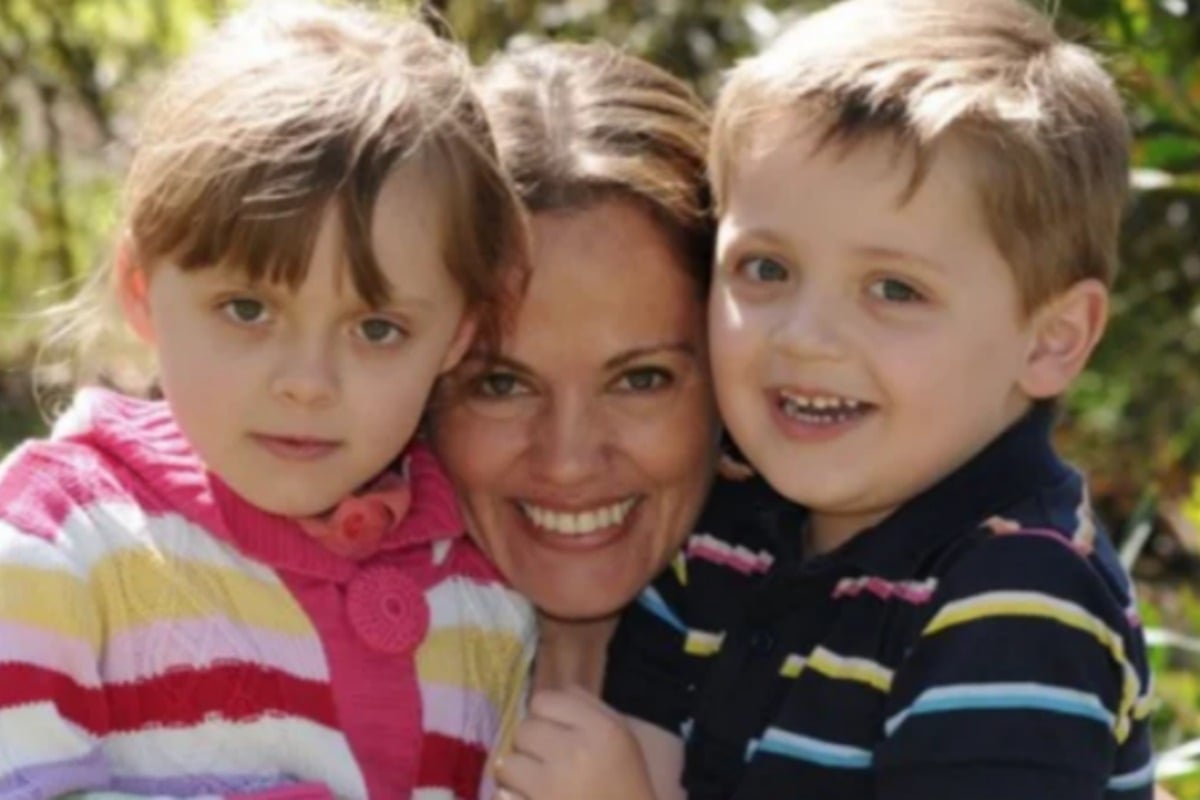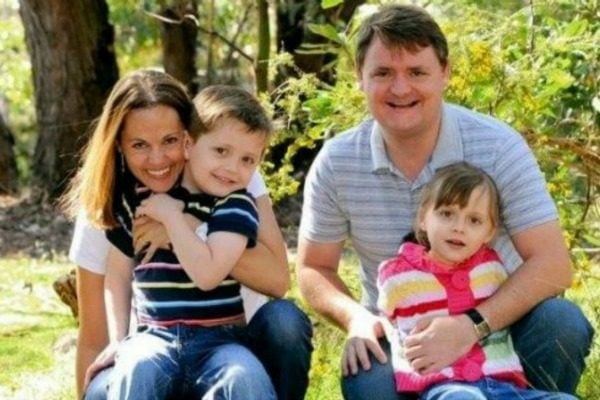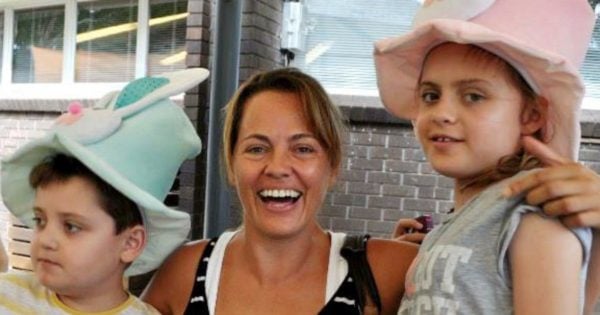
When police arrived at 68 Sir Thomas Mitchell Drive on a dreary Monday morning in October, 2016, they couldn’t have known what was waiting for them inside.
The tree-lined street overlooked a park, and the single storey brick home appeared cosy and unassuming, like any other on the corner block.
They were there because the two children, Martin and Elisa, had not arrived at school that day. In addition, their mother, Maria Lutz, never showed to the school canteen, where she was meant to be volunteering. When Nichole Brimble, a friend from the primary school, called her, Maria didn’t pick up.
So, the friend called triple zero. And the police were sent on a welfare check.
Listen to Mamamia’s daily news podcast The Quicky on the story behind the Lutz family tragedy. Post continues after audio.
The house was all locked up, and the cars were parked out the front. It wasn’t until the police opened the back gate and peered inside a window, that they realised this was not going to be the routine check they’d anticipated.
Lying on the floor face down, beneath a gently spinning ceiling fan, was Fernando Manrique.
When the police entered, they didn’t know that the cause of death was still lingering in the air, odourless and colourless.
Initial reports stated the facts.
Fernando Manrique and Maria Lutz had moved to Australia from Colombia. Fernando had studied engineering, Lutz law. Five years after arriving in Australia, where they were granted working visas then citizenship, Lutz fell pregnant with their first child, Elisa. Just over a year later, their second child, Martin was born.

It didn't take long for a line to be drawn between two high needs children, and a family who were now dead.
At first, some wondered if Lutz herself had been complicit in the murder of Elisa and Martin. Had their needs become a burden, publications at the time asked. Did the parents desperately need an out? Had they been 'driven to the edge'?
A conversation ensued about support for parents caring for children with disabilities. Was there enough respite? Was this family in particular, migrants from Colombia, too isolated? Where was the community support?





























































































